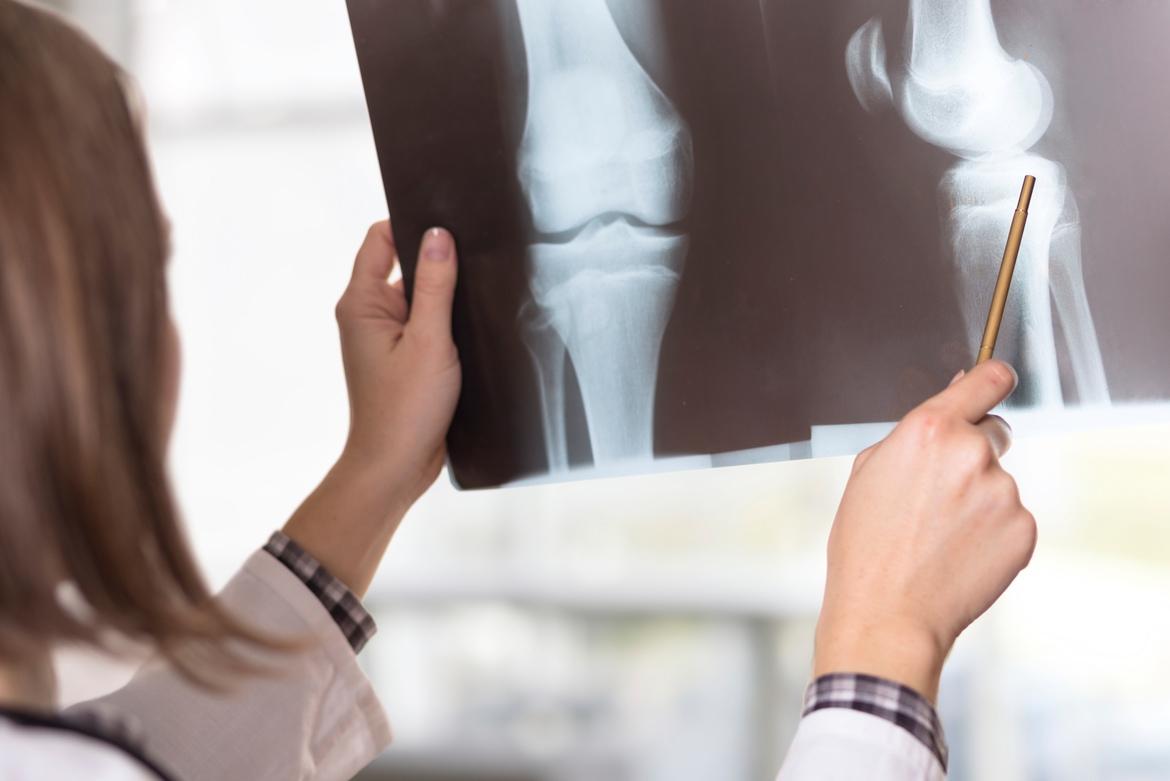-
-
Featured Care Areas

Bone Metastasis
What is bone metastasis and bone cancer?
Bone metastasis refers to cancer in a different organ that has spread to the bone. Also known as secondary bone cancer, it occurs when cancer cells break away and spread from the original (primary) tumour to the bone. This is different from a primary bone tumour, which starts in the bone.
While all types of cancer have the possibility to spread to the bones, there are cancers that are more likely to lead to bone metastasis, such as:
- Breast cancer
- Kidney cancer
- Lung cancer
- Lymphoma
- Multiple myeloma
- Prostate cancer
- Thyroid cancer
Bone cancer is cancer that develops from the bone itself. Also known as primary bone cancer, it can affect people of all ages. Cancer occurs when abnormal cells divide out of control. While it can begin in any bone of the body, cancer of the bone usually affects the pelvis or the bones in the arms and legs.
Types of bone cancer
The most common types of bone cancer include:
- Osteosarcoma – This is the most common form of bone cancer and it begins in the cells that form bones. Osteosarcoma can start in any bone but is most often found in the legs or arms. Most people diagnosed with osteosarcoma are under the age of 25, and it is thought to occur more often in males than females.
- Chondrosarcoma – A malignant type of bone cancer that primarily affects the cartilage cells of the femur, arm, pelvis, knee and spine. Common in middle-aged adults, it is the second most common primary malignancy of the bone. It is also resistant to chemotherapy and radiotherapy, making it one of the most difficult bone tumours to diagnose and treat.
- Ewing’s sarcoma – This is a rare type of cancerous tumour that grows in the bones or the soft tissue around the bones. It mainly affects children and young adults between the ages of 5 – 25.
What are the symptoms of bone metastasis and bone cancer?
It is important to pay attention to the changes in your body and potential symptoms to detect bone cancer early. Bone cancer symptoms include:
- Feeling a lump or swelling around a joint or bone
- Fever
- Bone or joint pain
- Redness on the skin
- Fatigue
- Sudden weight loss
What causes bone metastasis and bone cancer?
Cancer cells are different from normal cells in various ways. Unlike normal cells, cancer cells keep growing and doubling, forming a tumour that grows in size. It is not clear what causes these cells to divide out of control.
What are the risk factors for bone cancer?
Some factors that are associated with an increased risk of developing bone cancer include:
- Inherited genetic syndromes – Certain rare genetic syndromes such as Li-Fraumeni syndrome and hereditary retinoblastoma can increase the risk of bone cancer
- Radiation therapy – People who have had exposure to radiation (e.g. receiving radiation therapy for cancer) are at a higher risk
- Chemotherapy – Some drugs involved in chemotherapy may increase one’s risk for developing bone cancer
- Secondary cancer – When a cancer starts in one place in the body and spreads elsewhere, this is a secondary cancer or a metastasis. Some cancer types are particularly likely to spread to the bone, including breast cancer and prostate cancer.
- Other bone conditions – Benign tumours in the bone and other non-cancerous bone diseases may increase one’s risk for bone cancer. Rarely, people with Paget's disease of the bone, which disrupts the body’s process of gradually replacing old bone tissue with new ones, can develop bone cancer.
What are the complications and related diseases of bone cancer?
Bone cancer can compromise bone health and put you at risk of complications including:
- Bone pain – This is usually dull and continuous, and can intensify as the cancer grows.
- Hypercalcaemia – A condition in which you have too high a concentration of calcium in the blood. Symptoms of hypercalcemia include and abdominal pain, nausea, vomiting and anorexia.
- Pathologic fractures – Cancerous bones become weak and can lead to broken bones.
- Spinal cord compression – This causes severe pain, motor weakness, sensory deficits and gait problems. It can also disturb functions of the bowels, bladder, and sexual organs.
How can you prevent bone cancer?
As there are many possible factors that cause different types of cancer including bone cancer, ways of prevention are still unknown.
The best way to fight the disease is through early detection. The earlier bone cancer is detected, the higher the chance for a successful treatment.
Regular check-ups are recommended for people who are at high risk of developing bone cancer, especially if they have health conditions such as Li-Fraumeni syndrome, retinoblastoma, or other conditions in which the risk of sarcoma is inherited. Talk with your healthcare team for more information about your personal risk of bone cancer.
This page has been reviewed by our medical content reviewers.
Need help?
For enquiries, please call
+65 6250 0000 (Orchard) or +65 6898 6898 (Novena)
For appointment bookings, please WhatsApp
+65 8111 7777 (Orchard) or +65 8111 5777 (Novena)




